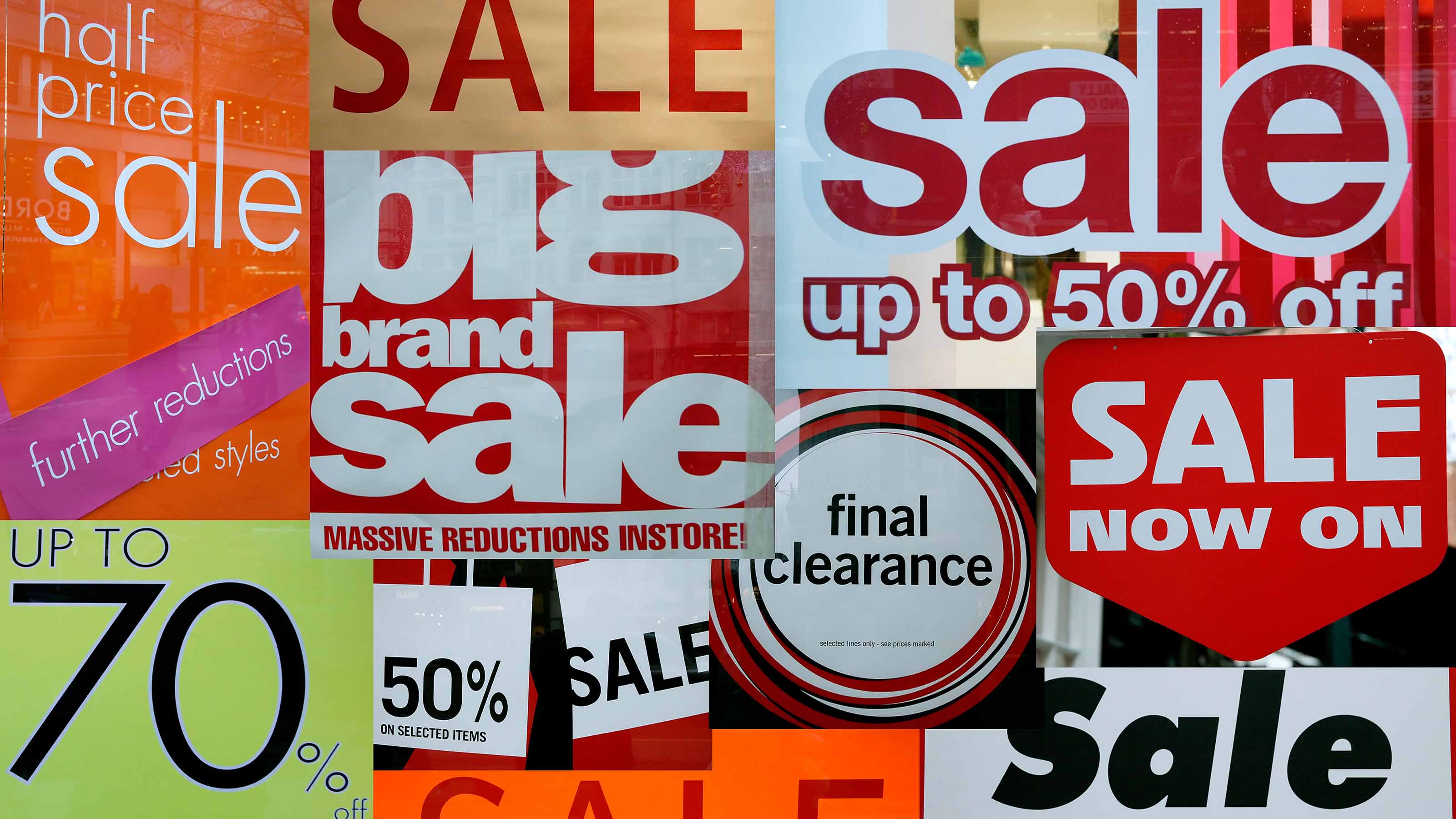8 Stocks to Cash In on Europe's Woes
The countries may be troubled, but many companies based in the European Union are in better shape.

Profit and prosper with the best of Kiplinger's advice on investing, taxes, retirement, personal finance and much more. Delivered daily. Enter your email in the box and click Sign Me Up.
You are now subscribed
Your newsletter sign-up was successful
Want to add more newsletters?

Delivered daily
Kiplinger Today
Profit and prosper with the best of Kiplinger's advice on investing, taxes, retirement, personal finance and much more delivered daily. Smart money moves start here.

Sent five days a week
Kiplinger A Step Ahead
Get practical help to make better financial decisions in your everyday life, from spending to savings on top deals.

Delivered daily
Kiplinger Closing Bell
Get today's biggest financial and investing headlines delivered to your inbox every day the U.S. stock market is open.

Sent twice a week
Kiplinger Adviser Intel
Financial pros across the country share best practices and fresh tactics to preserve and grow your wealth.

Delivered weekly
Kiplinger Tax Tips
Trim your federal and state tax bills with practical tax-planning and tax-cutting strategies.

Sent twice a week
Kiplinger Retirement Tips
Your twice-a-week guide to planning and enjoying a financially secure and richly rewarding retirement

Sent bimonthly.
Kiplinger Adviser Angle
Insights for advisers, wealth managers and other financial professionals.

Sent twice a week
Kiplinger Investing Weekly
Your twice-a-week roundup of promising stocks, funds, companies and industries you should consider, ones you should avoid, and why.

Sent weekly for six weeks
Kiplinger Invest for Retirement
Your step-by-step six-part series on how to invest for retirement, from devising a successful strategy to exactly which investments to choose.
Europe is big. The European Union, which does not include such nations as Switzerland and Norway or such partly European ones as Russia and Turkey, has the largest gross domestic product in the world -- a bit more than that of the U.S. and one-and-a-half times that of China and Japan combined. Its population is nearly two-thirds larger than that of the U.S., and Europe is home to 12 of the 30 largest companies in the world (by revenue), the same as the U.S. and four times as many as China.
Of course, the reason to pay attention to Europe right now is not merely because it is big but also because it is in trouble. The debt-paying ability of Europe’s weak links -- Greece, Portugal, Ireland and perhaps Spain and Italy -- is in doubt. Because these countries are joined in a broader monetary union with 12 other nations, their room to maneuver is limited. To avoid default, they have to depend on the support of stronger countries such as Germany, which resembles the hard-working, farsighted ant in Aesop’s fable, compared with southern Europe’s grasshopper.
Greece, especially, has been living far beyond its means and, because of austerity measures and the fears of bankers and investors, is now paying a heavy price. Unemployment is 16%, GDP this year is expected to fall by 5.5%, and interest rates on its ten-year bonds exceed 20%. Because Europe’s large banks have lent Greece and the other economically troubled nations many hundreds of billions of euros, they too are at risk; economists are predicting that Europe will, at best, generate 1% economic growth next year and, at worst, be in recession.
From just $107.88 $24.99 for Kiplinger Personal Finance
Become a smarter, better informed investor. Subscribe from just $107.88 $24.99, plus get up to 4 Special Issues

Sign up for Kiplinger’s Free Newsletters
Profit and prosper with the best of expert advice on investing, taxes, retirement, personal finance and more - straight to your e-mail.
Profit and prosper with the best of expert advice - straight to your e-mail.
As Europe’s fortunes have turned down, so have its stock markets. For the three-month period that ended September 30, the MSCI Europe index, a benchmark of about 500 stocks from 16 European nations, dropped 24%, leaving it down 11% for the year.
What makes the uncertainty in Europe particularly frightening is that, unlike in the U.S., a single governmental authority is not empowered to fix the problem. Each day seems to end in a cliffhanger.
Stick with European Stocks
So should you stay away from European stocks? No. Many European companies are in much better shape than the nations in which they are based. Their balance sheets are in good order, and they derive a large share of their sales not from anemic Europe but from the U.S. -- which, despite its own difficulties, is expected to grow nearly one percentage point faster than Europe in 2012 -- and from developing nations, which are doing far, far better.
In an economy gone global, where a business is domiciled is far less meaningful than it was a generation ago. But in this time of intense fear about the future of Europe, the stocks of companies based on the Continent are suffering more than they should be.
Among them is Total (symbol TOT), the Paris-based integrated energy company. Total operates in 130 countries, including China, and is expected to generate sales of $221 billion in 2011. The Value Line Investment Survey gives the firm its top rating of A++ for financial strength and estimates a net profit this year of $16 billion, more than double that of 2003. Yet Total shares fell 32% from May to September and are down 11% year-to-date (unless otherwise indicated, results, prices and related data are through October 7). The stock’s price-earnings ratio is only 6, and it sports a dividend yield of 2.9%, compared with a yield of 2.1% for ten-year U.S. Treasury bonds.
By contrast, the stock of Chevron (CVX), a U.S. energy company with revenues in the same range, was up 6% for the year and has a market cap nearly twice as large. Chevron is the better company, in my view, but Total is the better value.
Another example of anti-European prejudice is eyewear maker Luxottica (LUX). The company is based in Milan, but its reliance on the Italian economy is minimal. A vertically integrated firm that makes the frames and lenses it sells, Luxottica is the largest retailer of glasses in the U.S., owning such chains as Pearle Vision, LensCrafters and Sunglass Hut, and such brands as Oakley and Ray-Ban. Sales are growing 20% a year in emerging markets. The firm owns 400 stores in Latin America, has a major presence in the Middle East and South Africa, and is the top high-end eyeglass retailer in China.
Although analysts expect Luxottica’s earnings to increase 20% this year and climb 9.5% annualized over the next few years, its stock has fallen 11% in 2011. The stock is now nearly one-third below its five-year high. It’s as if the market is demanding a discount for companies with a European accent -- no matter where their sales come from or how strong their earnings growth. Luxottica’s shares could certainly go lower, but if you have been waiting for an entry point to buy one of the world’s great specialty retailers, this could be it.
Also trading at a European discount is Unilever (UN), the giant Anglo-Dutch consumer-products firm. Unilever, whose brands include Lipton, Ben & Jerry’s and Dove soap, derives more than half of its sales from emerging nations. Its stock is up slightly this year, but it trails the 9% gain of the packaged-food sector. The shares of this powerful company (also rated A++ for financial strength by Value Line) yield 3.4%.
Novartis (NVS), a global health care company that happens to be based in Switzerland, was down for the year while the other major drug manufacturers were up as a group. Value Line ranks the company A+ for financial strength, and the shares yield 3.6%. All of the European stocks I have mentioned trade on large U.S. exchanges. Many of the Continent’s best companies do not. Below are four giants whose American depositary receipts trade on the “pink sheets,” the non-Nasdaq, over-the-counter market.
A recent standout has been Switzerland-based Nestlé (NSRGY.PK), which has been focusing on nutrition and healthy foods and has strong baby products (Gerber) and bottled-water (Nestlé Pure Life, Perrier) divisions. The stock is down for the year -- again, in marked contrast to the global packaged-food sector as a whole -- and is 16% below its 52-week high.
Based in France, LVMH Moёt Hennessy Louis Vuitton (LVMUY.PK) is the world’s top marketer of luxury goods. The stock fell 27% in the third quarter and was off 19% for the year, compared with an 8% loss for its sector, says Morningstar. This, too, appears to be a case of a global powerhouse in the bargain bin because of its European heritage, although the risks of owning a company that sells champagne and high-end luggage in a turbulent economy are plain.
Also attractive but carrying significant risks is Carrefour (CRRFY.PK), the world’s second-largest retailer, after Wal-Mart Stores (WMT). Although the majority of its sales are in Europe, Carrefour, also based in France, is moving aggressively into emerging nations, with special emphasis lately on Brazil, China, Indonesia, Poland and Turkey. The stock was clobbered in September and is now down more than half from its 52-week high.
Volkswagen (VLKAY.PK), based in Germany, has been getting its act together. The second-largest global automaker (with brands such as Audi and Bentley, in addition to its namesake) is expected to make a profit in the U.S. for the first time since 2003. Overall earnings in 2011 are expected to be up more than 50% from the previous year. But the stock, perhaps reflecting investor concern that Volkswagen’s results will weaken next year, tumbled 33% in the third quarter.
A European recession would hurt Germany, the Continent’s strongest economy, with expected growth in 2011 of 3%. Germany relies on massive exports to Europe, but many of its firms, such as VW and SAP (SAP), a maker of business software, have worldwide reach as well. If you’re willing to take a chance, consider iShares MSCI Germany Index (EWG), an exchange-traded fund that has lost 18.1% so far this year. Top holdings are all major global companies: Siemens (SI), BASF (BASFY.PK), Bayer (BAYRY.PK), SAP and Daimler (DDAIY.PK).
The atmosphere right now on the Continent seems poisonous, but history shows that such times are when fortunes -- or at least large gains -- are made. No one knows whether the bottom has been reached, or even where it might be, but for long-term investors, there are excellent companies out there, ripe for the picking. Just be selective, and be careful.
James K. Glassman, executive director of the George W. Bush Institute, is an author, most recently of Safety Net: The Strategy for De-Risking Your Investments in a Time of Turbulence (Crown Business). He owns none of the stocks or funds mentioned.
Profit and prosper with the best of Kiplinger's advice on investing, taxes, retirement, personal finance and much more. Delivered daily. Enter your email in the box and click Sign Me Up.

-
 How to Turn Your 401(k) Into A Real Estate Empire
How to Turn Your 401(k) Into A Real Estate EmpireTapping your 401(k) to purchase investment properties is risky, but it could deliver valuable rental income in your golden years.
-
 My First $1 Million: Retired Nuclear Plant Supervisor, 68
My First $1 Million: Retired Nuclear Plant Supervisor, 68Ever wonder how someone who's made a million dollars or more did it? Kiplinger's My First $1 Million series uncovers the answers.
-
 How to Position Investments to Minimize Taxes for Your Heirs
How to Position Investments to Minimize Taxes for Your HeirsTo minimize your heirs' tax burden, focus on aligning your investment account types and assets with your estate plan, and pay attention to the impact of RMDs.
-
 5 Big Tech Stocks That Are Bargains Now
5 Big Tech Stocks That Are Bargains Nowtech stocks Few corners of Wall Street have been spared from this year's selloff, creating a buying opportunity in some of the most sought-after tech stocks.
-
 How to Invest for a Recession
How to Invest for a Recessioninvesting During a recession, dividends are especially important because they give you a cushion even if the stock price falls.
-
 10 Stocks to Buy When They're Down
10 Stocks to Buy When They're Downstocks When the market drops sharply, it creates an opportunity to buy quality stocks at a bargain.
-
 How Many Stocks Should You Have in Your Portfolio?
How Many Stocks Should You Have in Your Portfolio?stocks It’s been a volatile year for equities. One of the best ways for investors to smooth the ride is with a diverse selection of stocks and stock funds. But diversification can have its own perils.
-
 An Urgent Need for Cybersecurity Stocks
An Urgent Need for Cybersecurity Stocksstocks Many cybersecurity stocks are still unprofitable, but what they're selling is an absolute necessity going forward.
-
 Why Bonds Belong in Your Portfolio
Why Bonds Belong in Your Portfoliobonds Intermediate rates will probably rise another two or three points in the next few years, making bond yields more attractive.
-
 140 Companies That Have Pulled Out of Russia
140 Companies That Have Pulled Out of Russiastocks The list of private businesses announcing partial or full halts to operations in Russia is ballooning, increasing economic pressure on the country.
-
 How to Win With Game Stocks
How to Win With Game Stocksstocks Game stocks are the backbone of the metaverse, the "next big thing" in consumer technology.